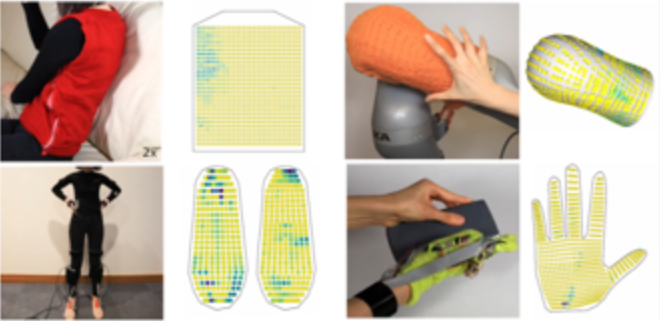A computational fabrication project I found interesting was the Computational Design and Fabrication Group at Massachusetts Institute of Technology’s Learning Human-Environment Interactions using Conformal Tactile Textiles. The project explores how the user has sensory interactions with a variety of various textiles. The textiles used are created via digital machine knitting of inexpensive piezoresistive fibers. They are then calibrated using machine learning techniques. The textiles are able to sense the various interactions that humans have with textiles, for example how they move, sit and adjust their clothing. The textiles then categorize the movement and store the data. I found this project particularly interesting because it is a small scale project that interacts quite intuitively with the user as opposed to the large scale intervention that we typically think of when we think of mapping human movement and interaction.

![[OLD SEMESTER] 15-104 • Introduction to Computing for Creative Practice](wp-content/uploads/2023/09/stop-banner.png)